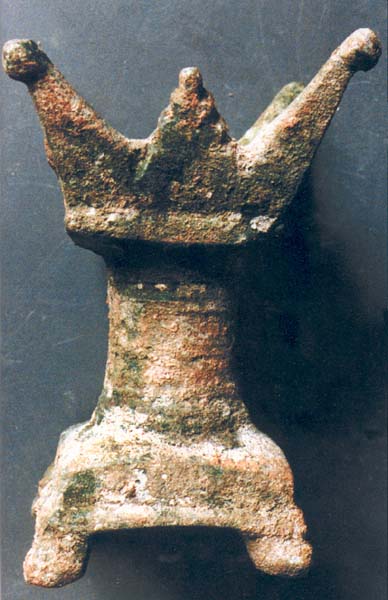Image Details

Torleif Elgvin
This 2.5-inch-high bronze incense altar from the collection of Norway’s Martin Schøyen has both an interesting history and uncertain origins. Dead Sea Scroll scholar John Marc Allegro originally purchased the incense altar from Bethlehem antiquities dealer Khalil Iskander Shahin, “Kando,” in 1953. Kando, who was selling scroll fragments from the Dead Sea caves on behalf of the Bedouin who had uncovered them, said the altar came from the then-unexcavated site of Qumran, near the caves. At the same time, Kando also sold Allegro a bronze inkwell (see photograph) that had likewise supposedly come from Qumran. Did the incense altar belong to the Jews who wrote and hid the scrolls? Probably not, says author Torleif Elgvin, who explains why not in the accompanying article.
